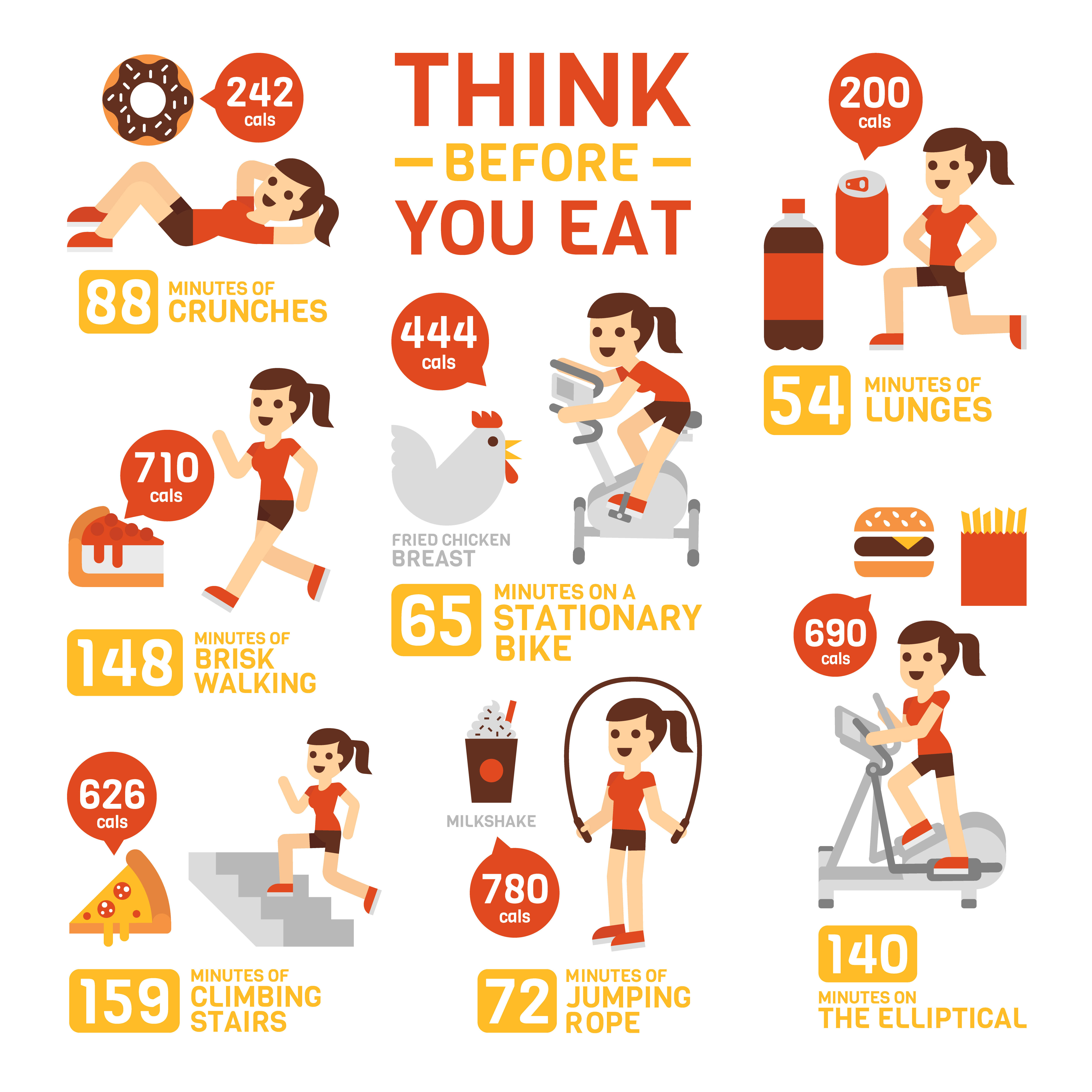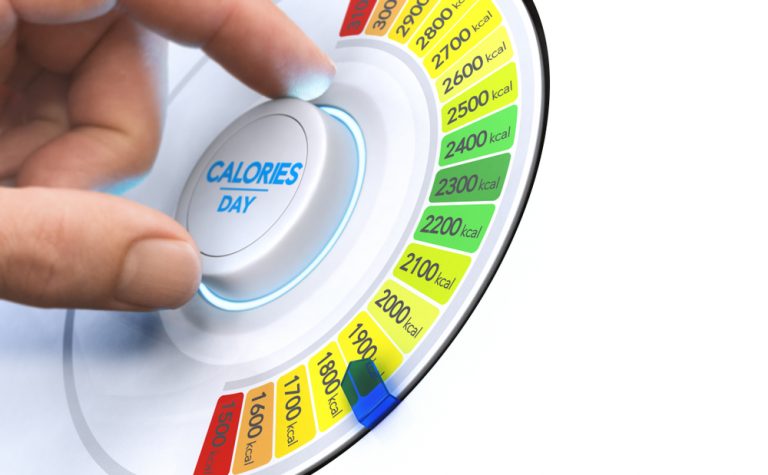Anyone who has ever been looking for information on weight loss has met with a calorie deficit. This is one of the absolute basics of proper weight loss, but understanding deficits is often erroneous. An erroneous diet may result in weight loss being not only ineffective, but also unhealthy. What is a calorie deficit and how to use it?
What is a calorie deficit?
The definition of a calorie deficit is simple. Deficit means that the body is in a state of negative caloric balance, that is, we burn more calories than we take from food. Then the shortages of energy needed to maintain the vital functions of the organism and the daily activities are obtained from other sources. It can be glycogen, and after it's finished, muscle proteins. But it’s very unlikely, because during weight loss we want to burn unnecessary fat, not muscle mass. For this reason, it’s necessary to release free fatty acids into the blood from the adipocytes, which will then be oxidized, i.e. burned. This is the basis of healthy weight loss.
How to calculate calorie requirements?
Although in theory everything looks easy, reality however, is much more complicated. Calculating the caloric needs is very difficult. The impact has a lot of factors that we are not able to account for in the calculation. Apart from basic metabolism, physical activity and thermogenic properties of food, we would have to consider a number of other factors, including stress, wellbeing, outdoor temperature and even the type of thermal processing and consistency of food.
After all, we can approximate our caloric needs, which will be very useful for weight loss. Such an indicator is obtained by analyzing the composition of the body with the use of electric biomining. Another way is to use energy demand calculators that use data on growth, weight, gender, physical activity, or the nature of your work. The more detailed the interview, the more accurate the result. They use, among other things the Mifflin-St Jeor pattern or the Harris-Benedict method.

How big of a caloric deficit to keep while losing weight?
Many people think that the less they eat, the faster they lose weight. We often meet with diets that recommend consuming only a few hundred kilocalories per day or even starving ourselves. It's the easiest way to lose health. During strict diets, we lose most of our muscle mass, and fatty tissue will remain intact. Moreover, too much deficit will lead to a slower metabolism, which will further weaken the ability to lose weight. During such diets, the body defends itself against loss of energy and goes into emergency mode, which is supposed to allow it to survive as long as possible. In such a paradoxical situation, fat tissue is deposited, as our body will want to store every excess calorie in case of emergency.
How big should the caloric deficit be? According to some researchers, e.g. Lyle McDonald, we should not cut more calories than in this formula:
Weight of fat (kg) x 69 = number of kilocalories (kcal)
By multiplying these values we get a result that we can subtract from our daily calorie requirement. This is absolutely the maximum number and in many cases it will be too large. A more reasonable determinant is the percentage where fatty tissue percentage determines the same percentage of energy demand for cutting. In case of 20% fatty tissue, our deficit will be 20% of total energy consumed by the body eg for 2500 kcal the demand will be 500 kcal deficit. In practice, however, a significantly lower negative balance, for example 250-300 kcal, is sufficient. Thanks to it, with proper diet and aerobic exercise, we will achieve much better results. In order to protect ourselves against catabolism and slow metabolism, it’s important to keep in mind high protein intake, e.g. in the form of a protein or BCAA supplement and the use of metabolism-boosting supplements.
Why is excessive calorie deficit dangerous?
Too much caloric restriction can cause many ailments. Hunger will worsen cognitive processes. Concentration will decrease, memory disorders will occur and it will be harder for us to perform logical tasks. Another symptom is a significant decrease in strength and capacity. Fainting may occur. The natural way of things will also be the decrease in muscle mass. There are also cases of reproductive disorders. Too low caloric intake will result in harmful changes in the hormonal balance, such as thyroid dysfunction.
Calorie deficit - summarization
In conclusion, the caloric deficit does not have to be as terrible as it’s said. Forget about strict diets and fasting. Use your brain when losing weight. Ideally, weekly weight loss will not exceed 1% of our total weight. It’s also necessary to balance the diet, that is, to provide the body with all the necessary nutrients. To be able to lose weight, you have to ... have strength!







One Comment